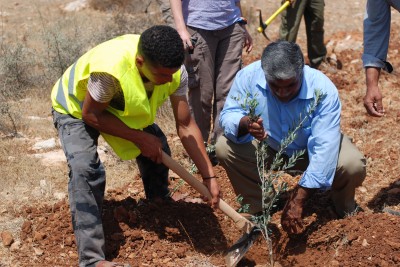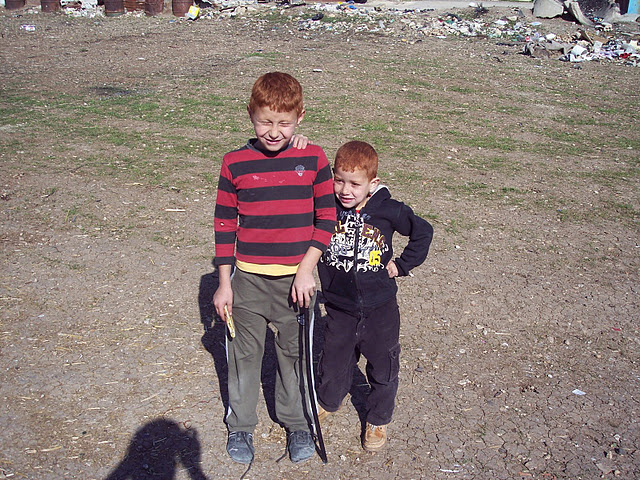Tag: Balata Refugee Camp
-
Balata Refugee Camp: The toll of human rights violations and imprisonment
by Alex 9 May 2012 | International Solidarity Movement, West Bank The 9th May marks the 22nd day of the Palestinian prisoners mass hunger strike. Today as with every day, the prisoners’ families and friends met at Nablus Prisoners’ tent in a show of solidarity, paying respect to their sons, brothers, daughters and sisters suffering…
-
Turtles in Aqraba
by Jonas Weber 10 February 2012 | International Solidarity Movement, West Bank “Hurry up you turtles!” Wael yelled in the distance. He had suddenly turned this walk into some kind of contest. We skipped across the rocky landscape of Palestine, dirty and with the sun in our eyes. We were planting trees in the small…
-
In Photos: Balata cleans up for a place to run free
by Amal 3 December 2011 | International Solidarity Movement, West Bank It is hard to describe the joy of a simple yet so meaningful clean up day, and the beauty of children playing in a stress-free environment. We joined residents of Balata Refugee Camp in a clean up and play day. Many people came out…


